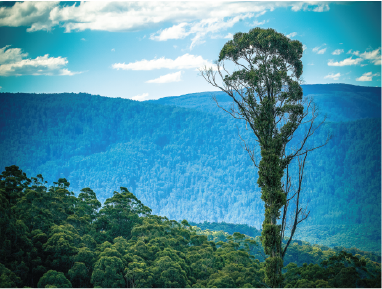
Australian researchers collaborate to model effects of climate change on biodiversity
The Biodiversity Climate Change Virtual Lab (BCCVL) is one of the most accessed services via the Australian Access Federation (AAF), the national provider for federated single sign-on. BCCVL’s almost 4000 registered users originate from around the world, including Australian universities, research organisations and government agencies, many of which rely on research and education networks for connectivity.
The high user demand for a cloud modelling platform that provides biodiversity and climate change modelling, demonstrates the success of the BCCVL as a national research service and the importance the AAF plays in providing access.
Prof. Brendan Mackey, Director of the BCCVL at Griffith University states that the BCCVL provides a “cutting edge cloud platform with a wide array of pre-modelling and post-modelling analytical tools”. Originally developed and supported by Griffith University, James Cook University, Macquarie University, University of New South Wales, University of Canberra and other national research infrastructure, the BCCVL has progressed beyond the academic domain into real world applications.
A pilot project in partnership with the Queensland, New South Wales and Federal Government environmental departments is currently underway to to generate state-of-the-science protocols, tools and data for modelling Australia’s threatened species. Outputs from this project will be world leading and assist with global research collaboration.
Enabled by the AAF and Australia’s national research and education network AARNet, researchers from Australian universities and research organisations can perform data analysis and modelling using the BCCVL with their organisational log in details. The federation, “facilitates the use and uptake of the system and people’s access to it” said Prof. Mackey. The BCCVL has proven to be a vital service for advancing environmental research and is working towards being self-sustaining. AAF will continue to support and work with services like the BCCVL to advance Australian research.
For more information please contact our contributor(s):

